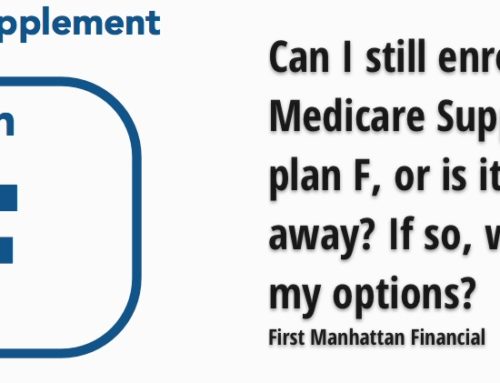If you’re a Medicare beneficiary trying to find Medicare coverage of routine eye exams or glasses, don’t want Original Medicare, Part A, and Part B, for these advantages in many scenarios. Original Medicare doesn’t cover routine vision care.
Medicare Part A
Medicare Part A covers vision care just when the vision condition is thought about a medical problem – as in a medical emergency condition or terrible injury when the beneficiary must be accepted to the hospital. Medicare Part A does not cover regular vision tests and eye refractions.
Medicare Part B
Medicare Part B covers vision tests to diagnose macular degeneration. You’re also covered under Part B for the clinically necessary treatment, consisting of outpatient prescription drugs (such as particular injected medications). Specific individuals with Medicare Part B and age-related macular degeneration are covered.
Medicare Vision Coverage
Generally, Original Medicare does not cover regular eyeglasses or contact lenses. Nevertheless, following cataract surgical treatment that implants an intraocular lens, Medicare Part B can help to cover the cost of corrective lenses, one pair of eyeglasses, or one set of contact lenses offered by an eye doctor.
Post-cataract services offered by an optometrist might be covered, if the optometrist is accredited to supply this service in your state, and:
Medicare will pay only for standard frames.
Spectacles and contact lenses are covered even if you had the surgery before you had Medicare.
Both eye lenses might be covered even if you had your cataract surgical treatment on one eye just.
A prescription order signed by your medical professional (ophthalmologist or eye doctor) should be on file with the supplier. Providers must be registered in Medicare and must fulfill stringent requirements to receive a Medicare supplier number. Medicare will not pay your claim if your supplier doesn’t have a number, even if your supplier is a big chain or outlet store that sells more than simply resilient medical devices (DME).
You will pay 20% of Medicare-approved amounts for one pair of spectacles or one set of contact lenses after the Part B deductible is met, if appropriate, after each cataract surgery with an intraocular lens.
Medicare will just compensate or pay for the necessary eyeglass frame cost. You will pay an additional price for upgraded frames.
For additional information about Medicare eye care, you might call 1-800-MEDICARE (1-800-633-4227), 24 hours a day, seven days a week.
Keep in mind: Ask if the supplier is a taking part provider in the Medicare program before you get long-lasting medical devices. If the supplier is a taking part provider, it must accept the assignment. However, if the provider is enrolled in Medicare, it isn’t “participating,” it has the choice to accept the task.
If the medical provider is not signed up for Medicare, your claim will not be covered by Medicare.
Glaucoma screening
A glaucoma screening test is covered by Medicare Part B once every 12 months for individuals at significant danger for glaucoma. This includes individuals with diabetes, a household history of glaucoma, African Americans at the age of fifty or older, and Hispanic Americans at the age of sixty five or older. The screening should be done or supervised by an eye physician who is lawfully allowed to do this service in your state.
You pay 20% of Medicare-approved quantities, and the Part B deductible uses.
Regular eye tests
Medicare, consisting of eye refractions, does not cover the routine eye test. Nevertheless, some preventive eye tests and screenings, such as glaucoma screening and treatment of macular degeneration, are covered.
You pay 100% out-of-pocket under Original Medicare for routine eye tests.
Treatment of macular degeneration
Medicare Part B will cover particular diagnostic tests and treatments of diseases and conditions of the eye, including therapy with certain injected drugs. Medicare covers some people with age-related macular degeneration (AMD). You would be accountable for 20% of Medicare-approved amounts for diagnosis and treatment of the eye’s diseases and conditions after the Part B deductible is used.
Eye prostheses
Eye prostheses are covered for patients with a lack or shrinking of an eye due to abnormality, injury, or surgical elimination. Medicare covers polishing and of the artificial eye, and typically covers replacement every five years.
You pay 20% of Medicare-approved quantities after the Part B deductible is applied.
Does Medicare cover dry eyes and allergies?
Though having dry eyes won’t necessarily affect your vision, it can be an unpleasant condition that impacts your lifestyle. Medicare will usually cover a test to diagnose the issue because it’s ruled out “routine,” at which point you’ll be on the hook for 20 percent coinsurance on top of your Part B deductible. Your Part D plan may likewise cover medication to treat the condition, though in some cases, over-the-counter treatment will be adequate. You’ll get comparable coverage with a Medicare Advantage plan, and Medigap can assist with your out-of-pocket costs.
Medicare Advantage Plans and Vision Coverage.
Medicare Advantage strategies are needed to provide at least the very same level of coverage as Medicare Part A and Part B, however many plans also cover extra advantages that go beyond Original Medicare, which might consist of additional vision care.
If we look at MAPD strategies in New York City, nearly all plans provide additional coverage.
Lots of plans have advantages of spectacles and routine eye exams and a lot more. You can call us at 1-800-252-7047 to discover what plans are in your location and a comprehensive vision coverage.
Many times, these strategies have a low or $0/month premiums.
Medicare Supplement and vision coverage.
Medicare Supplement Insurance, also called Medigap, does not supply coverage for dental or vision care. Instead, these plans provide coverage for a few out-of-pocket costs connected with Original Medicare, such as deductibles, copayments, and coinsurance.
Vision Coverage. A health advantage that at least partially covers vision care, like eye exams and glasses. If your plan does not include adult vision coverage, you can buy a “standalone” vision plan to reduce your vision care costs. The Marketplace does not use standalone vision strategies.
Vision Service Plan: Best Overall.
EyeMed: Runner-Up, Best Overall.
This are 2 top standalone vision plans.
Vision insurance can cost just $10 to $15 monthly. It will cover a yearly eye test at a $10 copay or less and all or a significant part of the cost of glasses and contact lenses.
If regular examinations are all you require, the cost of insurance might not be worth it. Take a look at the price for one year of vision insurance compared to the eye exam cost. If you require corrective lenses in addition to preventive care, you’re most likely much better off with the insurance.
Call us on 1-800-252-7047 to see if you qualify!





